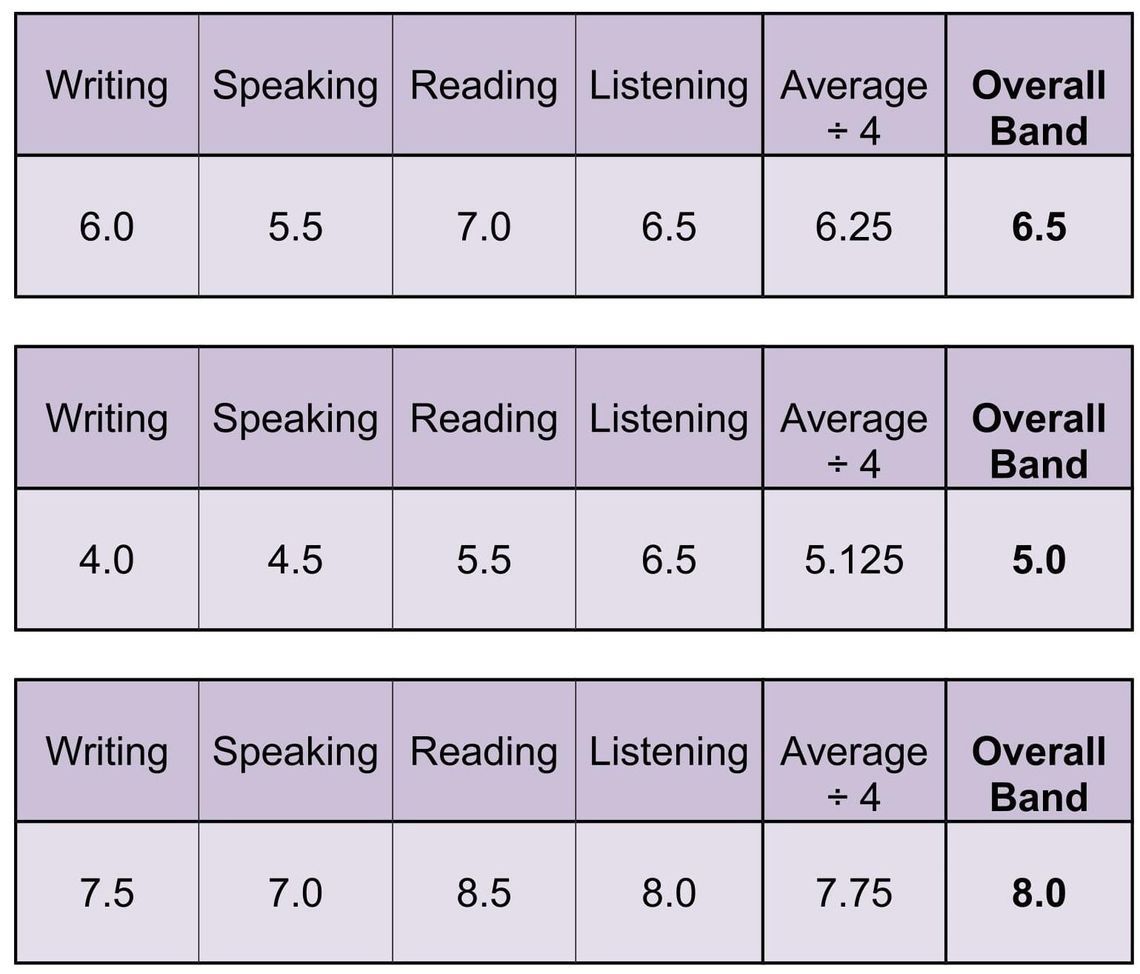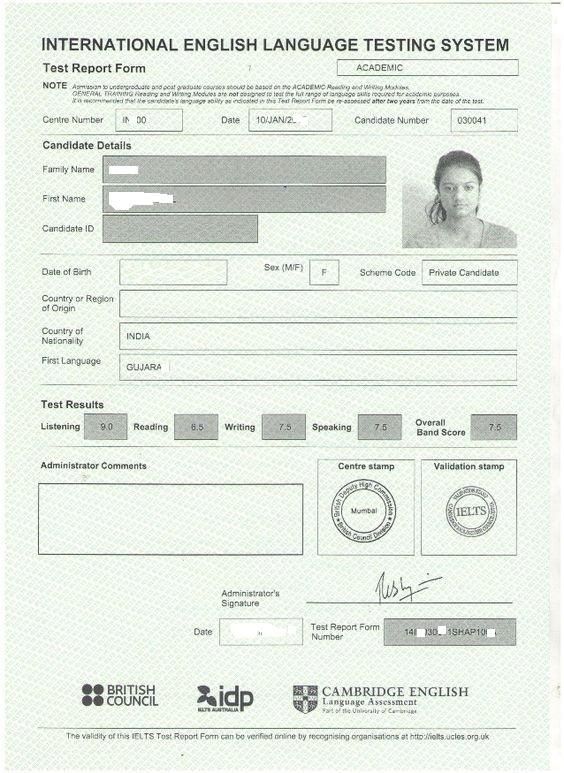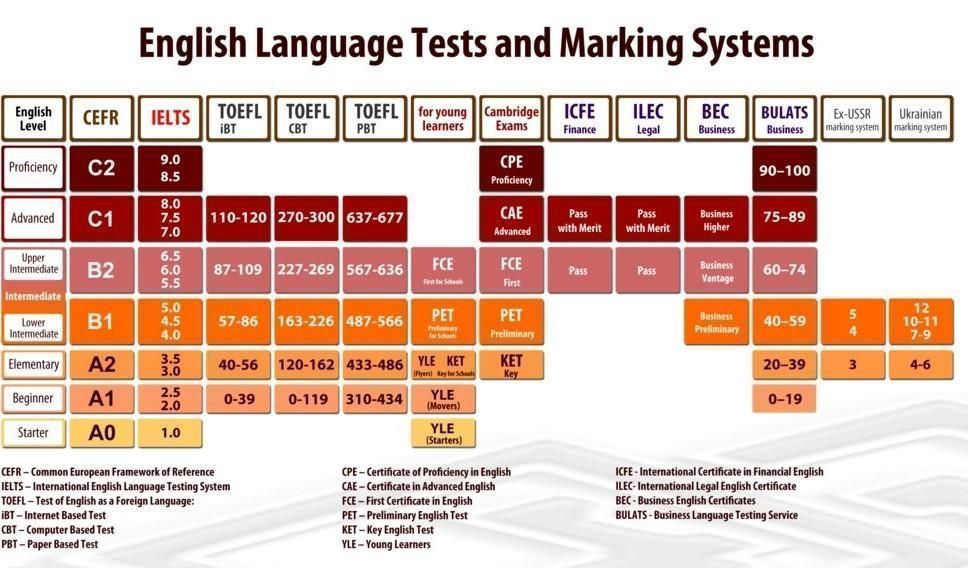
Apply to a foreign university with confidence
- Properly fulfilled documents
- Perfect motivation letter
- Support from a personal mentor
- Offers from several universities
Article score: 4.11 out of 5 (19 reviews)
IELTS Exam. Read about exam structure, duration, test scores, maximum and minimum points and other facts about the test.
Free consultation






IELTS — International English Language Testing System — an exam that tests the knowledge of English among foreigners. IELTS is required for admission to universities in most countries of the British Commonwealth. The exam results are necessary to obtain a work visa, the right to permanent residence, and citizenship for some English-speaking countries.
| Site | Description |
|---|---|
| Ieltspodcast | Intensive IELTS preparation. |
| Polyu | Introduction to the test structure and free mock test. |
| Ieltsforfree | Online IELTS tests; the system tracks your progress in preparing for the exam. |
| Ielts-exam | Information on each section of the exam and free preparation tests. |
| Section | Duration | Exercises |
|---|---|---|
| Listening | 30 min | 40 |
| Reading | 60 min | 40 |
| Writing | 60 min | 2 |
| Speaking | 11-14 min | 3 |
The structure of the exam is the same for both IELTS formats:
| Format | Popularity[1] |
|---|---|
| Academic | 78.1% |
| General Training | 21.9% |
All of your responses are recorded. The Speaking section takes place on the same day as the rest, or on a different day. Speaking is evaluated on four criteria:

Each part of the English test is evaluated on a scale from 1 to 9 points (grade interval — 0.5 points). The total exam score is the arithmetic average of the score sum for the four sections. IELTS scores are valid for two years.

It is absolutely possible to pass the IELTS exam with a high score. Do not believe rumors about the unpredictability and complexity of the exercises — IELTS is a standardized test. It is enough to form the correct tactics for completing exercises during the preparation stage. To get a high score, you do not need to have a large vocabulary and use overly complex grammatical constructions. The main thing is to study the very structure and specifics of the test.
Poor performance in one section of the test can be compensated for by a high result in another. For example, pretend you received:
| Listening | Reading | Writing | Speaking | Overall Band Score |
|---|---|---|---|---|
| 7.0 | 9.0 | 6.5 | 6.5 | 7.5 |
Despite the last two sections, the overall score for the exam will be a 7.5, which is equal to a C1 level.

The cost of the IELTS exam depends on the country and the center where you take the test. A complete list of cities and prices can be found on ielts.org. It is possible to retake the test — you can take the IELTS as often as you like.


Even English speakers make mistakes on the IELTS exam without knowing its structure. The test must be carefully studied: the format, wording of the questions, features of individual exercises, and so on. This is the only way you will be prepared to take the exam.
The key to preparing for standardized tests is practice. Solve as many IELTS exercises as you can. This way, you will hone your English comprehension skills and prepare for the exam. The more often you solve practice tests, the faster you will be able to complete the questions. You can use online resources for practice: Britishcouncil, Ieltsforfree, Polyu, and others.
To pass the Listening section, you need to be able to analyze information and understand the main idea of each text. To prepare, listen to as much English speech as you can: radio, TV, series, and movies. For the Academic test, we recommend watching TED Talks and lectures in English. Choose topics that interest you so that the learning process is not boring. Keep in mind that the Listening section makes use of varying accents: Scottish, Australian, New Zealand, and others. Not everyone understands them at first, so it is best to prepare ahead of time.
This is important for both versions of the test: General and Academic. In the first case, focus on more vital texts from newspaper articles and magazines. For the Academic test, read as much scientific literature as possible. This way, you will learn the specialized vocabulary that will be encountered on the exam. Read periodical literature: National Geographic, The Guardian, and The Times. Look for articles in the Cambridge Collection at Cambridge Core. Not all of them are in the public domain, but several dozen can be found. They are enough to develop skills in understanding academic texts.
To do well on the IELTS exam, consider a strategy for working with each section of the test. For example, in Reading, do not go into detailed reading of texts. Otherwise, you will not have enough time to answer questions. To prepare for the exam, use special techniques:
The Writing section is the hardest to pass, especially on the Academic IELTS exam. Practice — and only practice — will help you cope with the description of a graph, chart, or table in English. Knowledge of grammatical rules and constructions does not guarantee a good result. It is important to understand the principle of performing such tasks. To do this, review some exams from previous years.
Another important nuance of essays is the use of academic vocabulary in English. You can get acquainted with the necessary terminology by reading scientific journals, books, and articles in English: Scientific American, The Economist, Popular Mechanics, and BBC news.
The topics in the Speaking section are very different: sports, science, culture, music, cinema, art, and so on. The first task of the Speaking section is an interview, where you will be asked about work, studying, and interests. Decide in advance on topics that are easy for you to talk about. It could be jazz, figure skating, or Hitchcock films. Keep them at hand so as to direct the dialogue towards the area familiar to you. This must be done carefully: the examiner evaluates not only speaking skills, but also the ability to clearly answer the question.
To speak fluently on any topic in the exam, you need to diligently practice. An effective method is to participate in a conversation club or communicate with a native speaker.
| Ranking | Country | University | Bachelor's | Master's |
|---|---|---|---|---|
| 1 | USA | Harvard University | 7.5 | 7.5 |
| 4 | UK | University of Cambridge | 7 | 7 |
| 6 | UK | University of Oxford | 7 | 7 |
| 21 | Canada | University of Toronto | 6.5 | 7 |
| 32 | Australia | University of Melbourne | 6.5 | 6.5 |
| 111 | Ireland | Trinity College Dublin | 6.5 | 6.5 |
| 139 | New Zealand | University of Auckland | 6 | 6.5 |

English exams have different scoring systems. Below is a comparison of IELTS scores and other tests.

60+ countries
we work with
$1,000,000 saved
by students through scholarships
6,400 offers
our students got